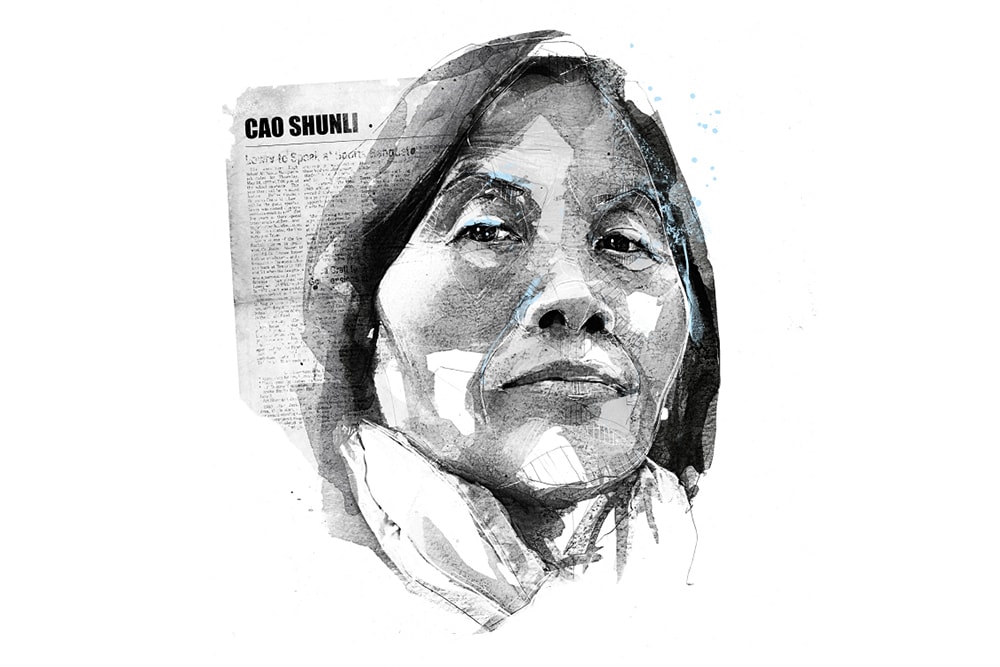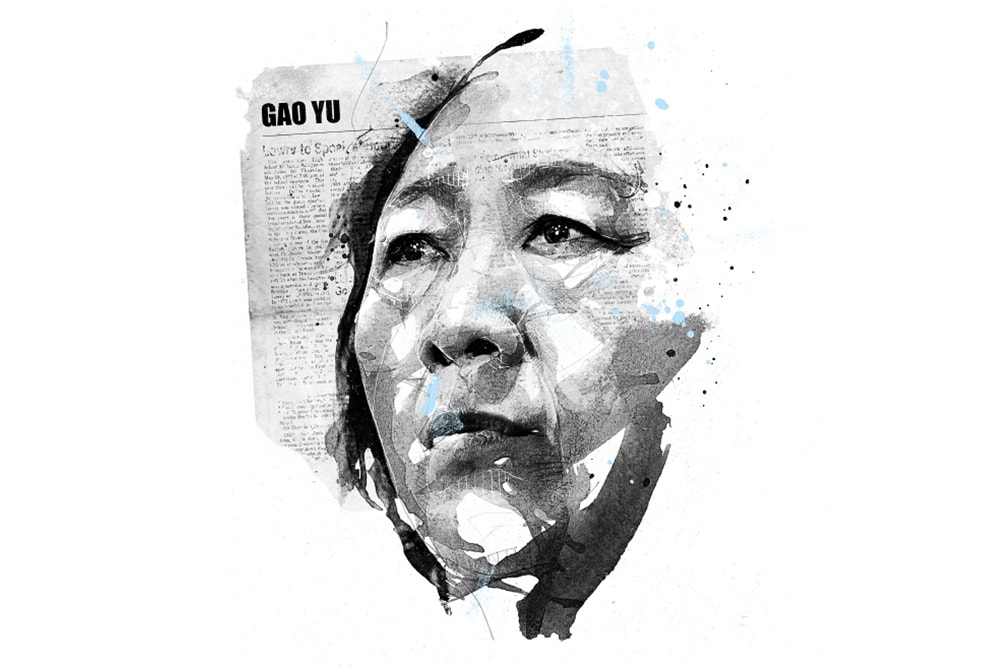Following a show trial in 2014, Ilham Tohti - a peaceful advocate for Uighur rights in China - is serving a life sentence in prison.
The path I have pursued all along is an honourable and a peaceful path. I have relied only on pen and paper to diplomatically request the human rights, legal rights, and autonomous regional rights for the Uighurs.
On 28 October 2013, a sports utility vehicle sped across Beijing’s Tiananmen Square, tooting its horn at confused pedestrians. In front of the famous Forbidden City, the car ploughed into a group of tourists and then burst into flames. Approximately forty people were injured in the incident and another five were killed. Among the dead were the occupants of the vehicle: Usmen Hasan, his wife, Gulkiz Gini, and his mother, Kuwanhan Reyim.
In the immediate aftermath of the crash, the Chinese authorities cracked down on social media, deleting images and reports of what had happened. The state media touched only lightly on the crash, but the authorities quickly declared the incident a “rigorously planned, organized, premeditated, violent terrorist attack.” The names of the car’s occupants suggested that they were members of China’s Uighur – predominately Muslim – ethnic minority. The police said that the car was from Xinjiang, an autonomous region in northwestern China where Uighurs are the majority, and which has seen outbreaks of violence between ethnic Uighurs and Han Chinese.
The following month, a radical Islamic group called the Turkistan Islamic Party announced that it had been responsible for the crash, a claim that was greeted with scepticism by exiled Uighur groups and human rights experts. Nevertheless, it was a version of events that suited hardliners on all sides. Experts on the growing tension between the Uighurs and the Chinese authorities knew what was coming next: a wave of repression targeting China’s Muslim minority and, inevitably, random acts of violence in response.
One of these experts was Ilham Tohti, the Uighur writer and world renowned advocate for Uighur rights in China. He publicly pleaded with the authorities not to resort to their typical tactics in Xinjiang – mass arrests, kicked-in-doors and increased surveillance: “The best thing would be for the authorities to take a step back and examine what drives people to such desperation in the first place,” he said.
A few weeks later, in an act of vindictive irony, Tohti’s car – which contained his wife and children – was rammed by a vehicle driven by plainclothes security officers who warned him to keep his mouth shut.
It was a sign of things to come: before the end of 2014, Tohti would find himself serving a life sentence in prison, convicted on the dubious charge of “separatism.”
Tohti is a professor at Minzu University of China in Beijing. Though an economist by training, he is best known in China as an outspoken advocate for Uighur rights and peaceful co-existence between his own ethnic group and the majority Han Chinese. In 2006, as a way of promoting inter-ethnic understanding, he co-founded the website Uighur Online. In recent years, relations between the two ethnic groups have become increasingly strained. The Uighurs complain of discrimination at the hands of the Han Chinese, both culturally – their (Islamic) religious and cultural practices are severely restricted – and economically: the Uighurs claim that they are systematically denied employment in Xinjiang in favour of Han Chinese. The anger and resentment resulting from this situation has led to explosions of violence in the region. The authorities blame these incidents on separatist or Islamic terrorist groups, and deal with them severely: by June 2014, Xinjiang courts had sentenced 113 people to long jail terms for terrorist activities. The situation for Uighur rights in China remains acute.
Tohti has never supported violence or campaigned for separatism, but his public rights advocacy has frequently provoked the ire of the Chinese authorities. He suffered frequent harassment following the launch of his website, and, in July 2009, he was placed under house arrest (and then held incommunicado in an unknown location) for speaking publicly about Uighur unrest in Xinjiang. Between 2009 and his imprisonment in 2014, there were further periods of house arrest.
In the months between the car incident in Tiananmen Square and Tohti’s arrest, the authorities implemented a new strategic plan (criticised as repressive by human rights groups) for “maintaining social stability” in Xinjiang. Tohti’s criticism of their heavy-handed tactics was not going to be tolerated in such an environment.
On 15 January 2014, roughly 40 security officers rampaged through Tohti’s apartment in Beijing, detaining Tohti and confiscating computers, flash drives, books, papers and his students’ assignments. Tohti’s young sons were threatened. The following day, the Chinese Foreign Affairs Ministry issued a statement saying that Tohti had been “criminally detained” on suspicion of “committing crimes and violating the law.”
Tohti was denied access to legal representation for the first six months of his detention and was held in extraordinarily harsh conditions. For the first twenty days following his arrest he was shackled; in March 2014 he was denied food for ten days. In September 2014, following what was described as a “show trial,” Tohti was convicted of “separatism” and handed a life sentence.
In June 2015, Tohti was allowed his first family visit, eighteen months after his arrest, but they are limited to just one visit every three months. As Tohti’s daughter Jewher explained in May 2017, with the distance between Beijing and Urumqi being 2,400 km (1,500 miles), the family cannot always make it because of the time and cost of the journey.
Tohti’s family and friends have been persecuted as well. His 25-year old niece from Atush was sentenced in 2016 to ten years in prison for possessing photos of him and two articles about him on her cell phone. Seven of his students have been imprisoned on separatism charges, but their whereabouts remain unknown.
Ilham Tohti’s courage and commitment to defending Uyghur rights has been recognised with a slew of awards: the PEN/Barbara Goldsmith Freedom to Write Award in March 2014; the Martin Ennals Award for Human Rights Defenders in October 2016, and; the 2017 Weimar Human Rights Award presented at a ceremony marking 10 December International Day for Human Rights. A year earlier, over 120 writers world-wide, among them Salman Rushdie, Margaret Atwood, Neil Gaiman and J M Coetzee marked the Day by signing a petition calling for the release of writers imprisoned in China, among them Ilham Tohti. It read: “The enforced silence of these friends and colleagues is deafening, and the disappearance of their voices has left a world worse off for this egregious injustice and loss”.
In an open letter published in January 2019, 132 scholars and 18 civil society groups called on China’s government to immediately release Tohti and other academics who are arbitrarily detained in various political indoctrination camps.
In May 2019, Tohti received the Freedom Award in absentia by the democracy watchdog Freedom House. He was awarded the Václav Havel Human Rights Prize by the Council of Europe on 30 September 2019. After this, he was given the European Parliament Sakharov Prize for Freedom of Thought on 24 October. His daughter accepted the European Parliament award on his behalf in December, and shared that Tohti has been held incommunicado since 2017.
In December 2023, more than 180 prominent officials and experts across the world nominated Tohti for the 2024 Nobel Peace Prize. The following month, civil society groups marked Tohti’s tenth year in detention by calling for his immediate release.
In an autobiographical essay written in 2011, Tohti insisted that he is not a “political figure” and emphasised his work as a scholar and advocate for ethnic understanding.
Outside of my scholarship, I wish to be known solely as an emissary and a conduit helping to make connections and promoting ethnic exchange and communication.”
Illustration by Florian Nicolle



